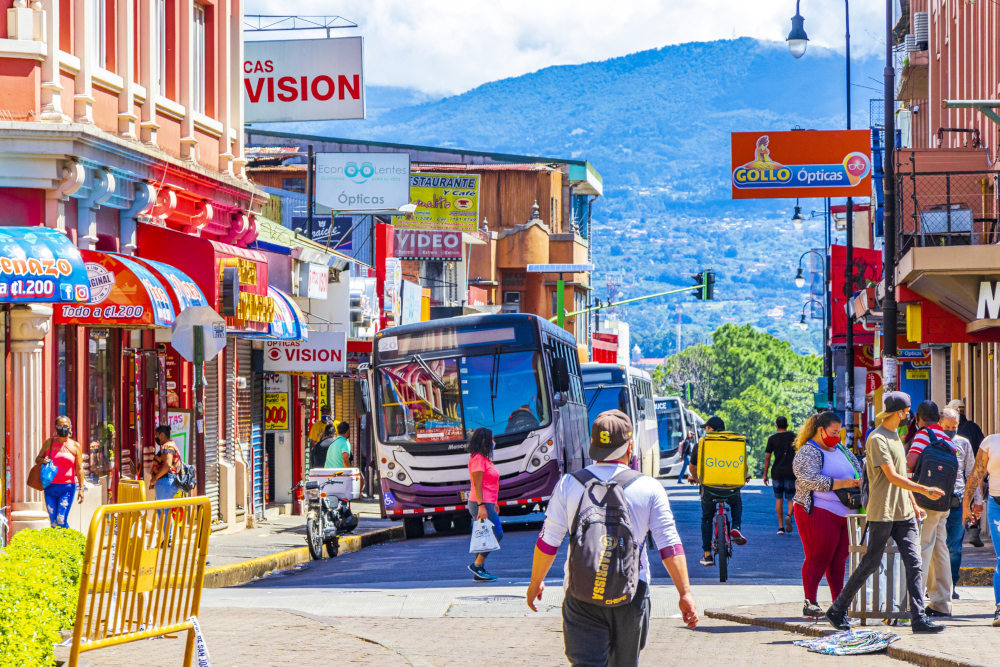Costa Rica: Outsider and anti-establishment candidate elected as president and likely to renegotiate current IMF programme

Event
Rodrigo Chaves, leader of the Social Democratic Progress Party (PPSD), won the second round of Costa Rica’s presidential election, which took place on 3 April. Chaves is a former World Bank economist and was seen as an outsider and anti-establishment candidate. He is expected to take up office on 8 May, where he will need to work together with other parties in order to put forward his policy agenda. No political party was able to secure a legislative majority, while Chaves’s PPSD obtained only 10 seats in the 57-seat Legislative Assembly. Hence, Chaves might face difficulties to implement his policies, especially given the Congress’s fragmentation and its reputation for legislative gridlock.
Impact
One of Chaves’s main campaign pledges is to renegotiate the 3-year IMF loan agreement signed in June 2021 by the outgoing Alvarado administration. In September 2020, a previous IMF programme, and the associated fiscal consolidation, led to violent unrest, causing the IMF programme to derail, and a new (watered-down) IMF agreement was signed in June 2021. Nevertheless, the IMF deal still requires – as often – fiscal austerity, which is rather unpopular in Costa Rica, two years only after a recession and while inflation is on the rise (see graph).

Chaves is likely to seek to relax fiscal commitments with the IMF. Like many other countries, Costa Rica´s public debt significantly increased in 2020 due to the Covid-19 pandemic. In the end of 2020, public debt-to-GDP stood at 67%, coming from 56% of GDP in the end of 2019, after a wide fiscal deficit of 8.4% of GDP (see graph 2). The fiscal deficit is also forecast to remain elevated in 2020, at 4.5% of GDP. The fiscal consolidation under the IMF programme is expected to gradually decrease the fiscal deficit to -2.8% of GDP in 2024. The question remains to know how far the renegotiations with the IMF will go and if the president will be able to enforce fiscal consolidation in a fragmented Congress. Without fiscal consolidation, public debt, standing at an elevated 68.3% of GDP in the end of 2021 and at a high 430% of public revenues, might increase to an unsustainable level in the medium term, especially vis-à-vis public revenues.

Costa Rica´s MLT and ST political risk ratings are in category 3/7, with a stable outlook. The MLT political risk rating is supported by moderate external debt-to-GDP and to current account revenues, relatively low external debt service-to-current account revenues and by the political stability of the country. A significant worsening of the public finances, however, could lead to a downgrade of the MLT political risk rating. ST political risk rating is supported by the relatively low external short-term debt and moderate current account deficit, forecast at -4% of GDP in 2022, though foreign exchange reserves stand slightly below an adequate level, at 2.8 months of import cover in March 2022. The business environment risk rating is moderate (category D/G) thanks to moderate real GDP growth (projected at 3.5% for 2022), the appreciation of the currency, relatively low perceived corruption, and though inflation is rising and expected to continue to rise due to rising global commodity prices, it stood at a manageable level of 3.3% in December 2021.
Analyst: Jolyn Debuysscher – J.Debuysscher@credendo.com